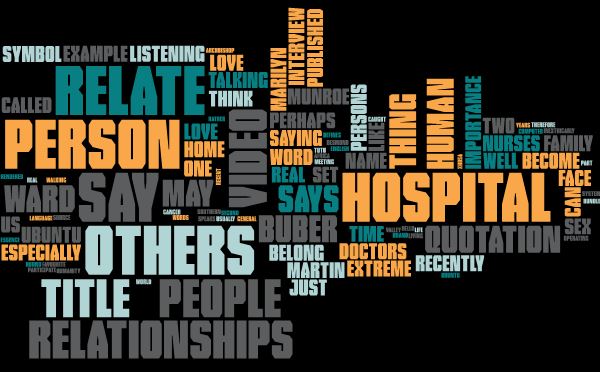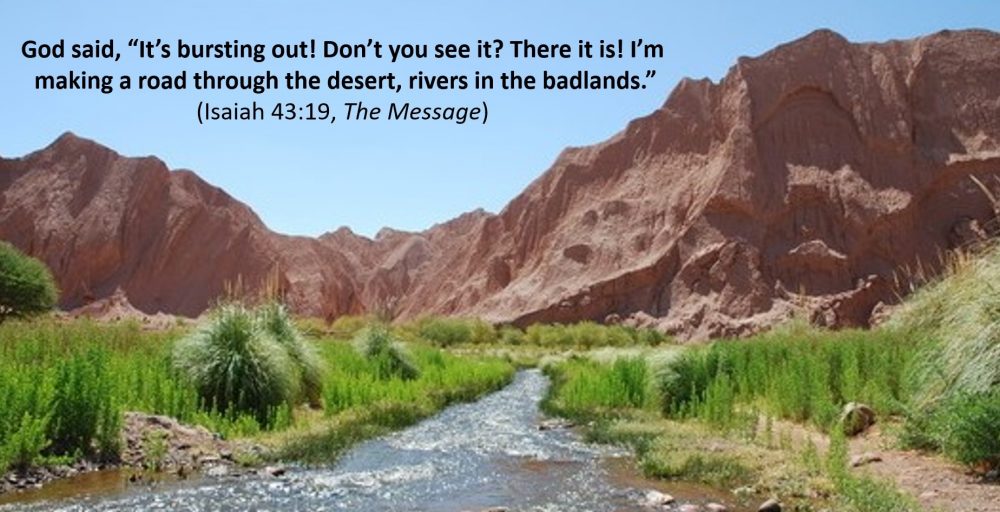
This is the text of a video on my YouTube channel entitled Walking through Cancer Valley: 2. All Real Living is Meeting.
“Hello. This is the second video in the set under the general title “Walking through Cancer Valley”. The title of this one is “All Real Living is Meeting”.
‘Ubuntu’ is the brand name of a computer operating system but the source of the name is a word in the language of the Xhosa people of Southern Africa and it’s usually rendered in English as “I am because we are”. And this word ‘ubuntu’ has become one of my favourite words in recent years.
Archbishop Desmond Tutu defines it like this: “Ubuntu … speaks to the very essence of being human, saying my humanity is caught up, is inextricably bound up, in yours. We belong in a bundle of life and so …”, he says, “… we say in our part of the world a person is a person through other persons. It says not: I think therefore I am. It says rather: I am human because I belong, I participate, I share.”
The importance of relationships with others is surely something of which we have become very aware in this time of pandemic. We’ve been unable to meet face-to-face with family members and friends and for some it’s been especially heart-breaking not to be able to be with loved ones who may perhaps be in a Covid ward on a ventilator or in a care home and suffering from dementia.
For me in the hospital ward and for Val and the rest of the family here in Leighton Buzzard or up in Leeds, telephone conversations, text messages, WhatsApp video chats have been such comforting lifelines when visits to the hospital visitation were not allowed. And for me in the hospital, talking with fellow-patients in the time when I was in a shared ward or talking with nurses, doctors and those who brought the meals and those who cleaned the rooms were especially helpful.
How we relate to others is so very important. Martin Buber (from whom I borrowed the quotation which is the title of this video – “all real living is meeting”), Martin Buber famously distinguished between two kinds of relationship, between what he called ‘I-You relationships’ and ‘I-It relationships”. Now you may well think that I-It relationships can have nothing to do with how we relate to other people but Buber pointed out that it is all too possible for us to treat other people not as whole persons, real human beings like ourselves but as objects, as things, as a means to our advancement or our satisfaction.
I recently came across a quotation from the film star of the 1950s and early 60s, Marilyn Munroe, and she was quoted as saying this, “That’s the trouble, a sex symbol becomes a thing. I hate being a thing.” I googled this quotation and I discovered that it was from an interview with Life magazine, an interview that was published just two days before Marilyn Munroe died in her home in Los Angeles at the age of 36 because of an overdose with barbiturates.
Being related to as a sex symbol is perhaps an extreme example of I-It relation but there are many other less extreme ways in which we may relate to others not as a person but as a thing. We can so easily de-humanise the other person, by for example not really listening to what they say, not putting them first. How often in conversation do we find ourselves not listening to the other person but actually preparing what we’re going to say next!
Jesus said, “Love the Lord God with all your passion and prayer and intelligence and energy. … Love others as well as you love yourself. There is no other commandment that ranks with these.” That comes from Mark chapter 12, verses 30 and 31, as paraphrased in The Message.
One of the books that I read on Kindle when I was in hospital was The Road to Character by David Brooks and I was deeply moved by what he had to say about what he called ‘The Big Me’ culture and all he had to say about the importance of our love for other people. It’s a recently published book but I wish I could have had it back when I was a teenager just moving into working life!
Talking about how we relate to others and how they relate to us, I’ve mentioned doctors and nurses and other hospital staff and the title of the next video in this set is “Nurses and other Wonderful Human Beings”. Thank you.”
